Why Amazon Keeps Hiring MBAs
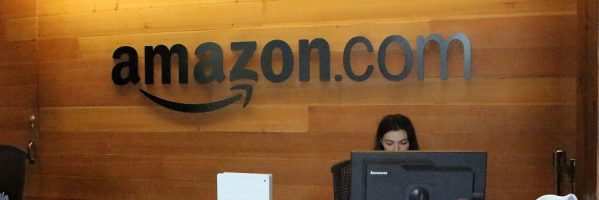
Editors Note: This article on Amazon hiring MBA students is an updated version of the original.
When thinking about the largest tech sector companies in the world, Apple, Microsoft, Facebook, Google, and Amazon are sure to top the list. Not only are these companies on the forefront of technological advancement in business and consumer electronics, they are also major players in the MBA job market.
Of all these notable heavyweights, Amazon is the biggest employer of graduates from elite business schools. According to the U.S. News & World Report’s top 20 rankings (from schools that release company-level hiring statistics), the e-commerce powerhouse hired more than twice as many top MBAs in 2016 as Microsoft, the next biggest tech employer. And with the upcoming development of HQ2, the company’s second headquarters, demand for MBA-level talent is sure to increase at the ever-expanding ecommerce giant.
Amazon—a company that offers online retail, cloud computing, mobile devices and media streaming services—has plenty of workforce needs. According to its annual report, Amazon has 230,800 full- and part-time employees. According to QZ, the company currently lists almost 17,000 open jobs among its corporate positions.
Why Is Amazon Hiring MBA Students?
Across all industries, Amazon is the fifth-largest employer of graduating MBAs, according to data on more than 200 full-time MBA programs collected by Bloomberg Businessweek. Amazon is also No. 4 on the 2013 Universum list of most popular MBA employers, up from No. 8 in 2011 and No. 6 in 2012.
Why the focus on hiring top MBA talent? Miriam Park, director of university programs at Amazon, told the Financial Times:

Miriam Park
“The Amazon recruitment process is designed to ensure we hire top candidates with high-growth potential whatever their background may be. As part of this we recruit current MBA students and MBA alumni for permanent and internship opportunities worldwide and see MBAs as an important part of our leadership development. We value people who can balance long-term strategic thinking with tactical execution, and who have the ability to make data-driven decisions.”
She added:
“We value MBAs for, in many cases, the global approach that they can bring to the business with many candidates having worked and studied in more than one country. Their range of experience and variety of backgrounds is invaluable in bringing a different way of looking at our business. We also value the analytical skills that they develop through their MBA. In fact, many of our senior leaders started at Amazon after completing MBAs.”
Which Potential Paths Leads to Employment at Amazon?
The best way that an MBA can get in with Amazon and end up with a job is to apply for an internship. Amazon also offers an MBA program that intends to create a pipeline from top business schools to actual jobs within the organization. Amazon offers several full-time opportunities to MBA interns. Each role lasts 11 to 12 weeks and provides students the opportunity to complete function-specific projects.
The company also offers a robust 8 to 12-week summer MBA internship that gives participants the opportunity to hone their decision-making ability in real-life consumer, finance, HR, technology businesses and operations environments. According to CNNMoney, Amazon’s summer internships host more than 170 interns from more than two dozen business schools each year.
What Kind of Jobs Can I Get at Amazon with an MBA?
As CNNMoney outlines, MBAs at Amazon may end up in any number of roles, whether it’s launching new products, finding ways to optimize the customer experience or evaluating the company’s future business investments.
Park discussed specific jobs that are offered to MBAs with the Financial Times. In terms of potential career options for MBAs at Amazon, she outlined participation in the Consumer Leadership Development (CLD) program, Pathways program for operations managers and Senior Financial Analyst (SFA) development program, as well as the role of senior product manager.
CLD is a three-year leadership development program in which MBAs rotate through two different roles from a choice of areas such as vendor management, in-stock management, marketing management, merchant management and/or retail product management. The goal of the program is to provide MBAs with a path to leadership roles at Amazon. Participants develop an understanding of the key roles within retail and become effective managers.
Pathways is a three-year, field-based program based out of warehousing and shipping centers for merchant goods and customer service sites. This is a position in which MBAs will have to develop leadership ability to complete fulfillment center and customer service operations.
SFA is a three-year leadership development program in which senior financial analysts are expected to evaluate and quantify new business ideas and perform data-intensive analyses to improve the way Amazon serves its customers.
Senior product managers work with technology teams to drive ideas from conception to execution, develop business models and marketing plans, define and analyze success metrics, manage strategic projects and own the product end to end. This job offers an inside track to future roles as general managers responsible for running large business segments.
Top Schools Tackle Sexual Harassment, NFL Protests, and More
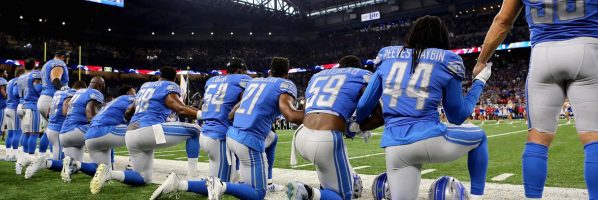
Should business schools teach ethics and social responsibility? In the past, top MBA programs stuck to a fairly typical curriculum: finance, marketing, accounting, economics. And while those topics still comprise the core of most MBA programs, they’re now only a part of the whole.
Beyond allowing MBA students to focus their studies in areas like entrepreneurship or technology, MBA programs are also taking on some of the most prominent ethical topics of the day, asking students to weigh in on current headlines and happenings. It’s the MBA ethics debate.
According to a United Nations group survey of business school students from around the world, students believe that ethics are a business’s most important responsibility. According to the report, “the exposure to, and teaching of, business ethics does not merely assist business leaders to resolve moral dilemmas. More importantly, it matures their proficiency in moral judgment and their ability to incorporate social issues in the decision-making process and assists them in implementing this in an all-inclusive manner.”
For example, last year a group of business executives—including the CEO of PepsiCo and head of General Motors—got together to dissolve two business councils that consulted with President Trump after insensitive remarks about the white supremacist violence that took place in Charlottesville, VA. And other executives such as the CEO of Patagonia, Yvon Choinard, have been vocal about political and ethical issues—even using their companies to take positions on social responsibility that would typically be considered outside the scope of business.
So, it’s no wonder many business schools have been making business ethics a more important part of their curriculum. The question is, “How should business ethics be added to the MBA curriculum, and how is it being added currently?” It depends on the school.
At Georgetown University’s McDonough School of Business, Professor Edward Soule teaches courses on business ethics, corporate social responsibility, and leadership. During these classes, he told the New York Times that he has assigned coursework covering a range of trending topics including sexual harassment at Uber, social justice protests by N.F.L. players, and how companies like Amazon have responded when attacked by President Trump.
“Something has changed,” Soule said. “I would be kidding you if I told you there wasn’t a different vibe in the classroom. Ethics and values have taken on more significance. It has to do with all of the things going on in this administration, often things that challenge our understanding of ethics and leadership.”
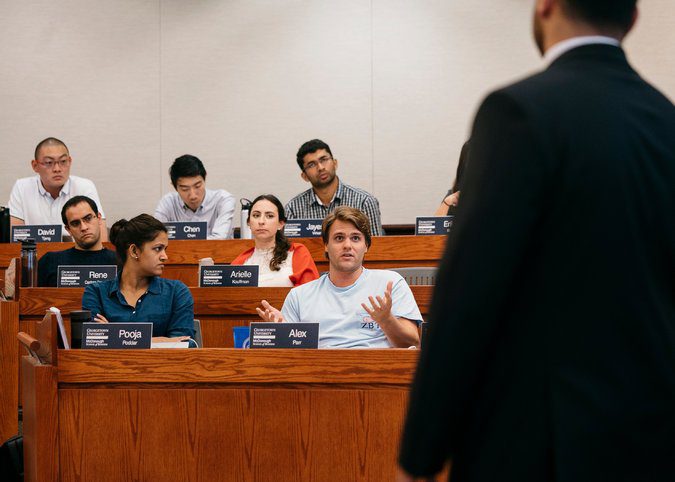
Students discuss the recent NFL protests in Prof. Ed Soule’s class at Georgetown’s McDonough School of Business. Photo via Justin T. Gellerson for The New York Times.
Georgetown McDonough is also home to the Institute for the Study of Markets and Ethics (GISME), a center that examines the ethical issues inherent in the functioning of a market society. Students, faculty, and researchers who participate in the center explore ethical questions as they relate to business and bring ethical considerations to bear on policy decisions regarding the regulation of markets. These are especially salient issues for Georgetown McDonough given its Washington D.C. location.
“At the McDonough School of Business, we have developed a method of teaching business ethics that includes normative experiential learning, communicates in terms readily understood by business students, and involves actual ethical decision-making on the part of the students,” Michael Douma, assistant research professor and director of GISME, said in a news release. “We have found that our approach results in students being more invested in the course and more committed to resolving ethical issues that confront them in a business environment.”
Another example can be found at Carnegie Mellon’s Tepper School of Business. According to John Hooker, a professor of operations research and business ethics and social responsibility, ethics has been a part of the Tepper School curriculum since the 1990s. “Our program was apparently the first to introduce the topic (1966), as part of a course on business law,” Hooker told us. “The ethics presence has gradually increased over the years, but we ethics faculty often have to fight for it. My view is that a required ethics course should be part of the picture.”
And Leanne Meyer, co-director of the Accelerate Leadership Center at the school, told the New York Times, “There’s a turning point in what’s expected from business leaders. Up until now, business leaders were largely responsible for delivering products. Now, shareholders are looking to corporate leaders to make statements on what would traditionally have been social justice or moral issues.”
As for ethics and MBA students, Tepper’s core offering in Ethics and Leadership is one of the only second-year courses it requires its students to take. The course teaches students how to foster their ability to reason and how to handle the ethical implications of managing organizations and people.
“The basic lesson for MBA students is that business ethics is not optional,” explained Hooker. “It is the basis for the social infrastructure that makes business possible, much as engineering is the basis for physical infrastructure. It requires careful analysis and training, no less than engineering or finance. This is why we need a stand-alone ethics course. Business ethics training teaches us to do ethics with our brains rather than rely on gut feelings. Otherwise, we have no way to reach consensus on the ground rules.”
In the end, there are many options for MBA students interested in ethics, though ultimately it up to the students themselves to raise topics that are pressing to them. “Ethics courses often focus on the hot topics. This stimulates discussion and raises course ratings, but it generates more heat than light,” said Hooker. “I focus on issues that students themselves raise. I also emphasize cross-cultural ethics, because business is global, and norms vary enormously around in the world. U.S. students typically have little awareness of this.”
Whether through case studies, guest speakers, simulations, competitions, or another initiative, the leading MBA programs dive into business ethics and corporate responsibility using a range of approaches. To learn more about Professor Hooker’s approach to ethics, you can check out his blog: Ethical Decisions.
This article has been edited and republished from our sister site, Clear Admit
20 Cities Survive Amazon HQ2 Shortlist
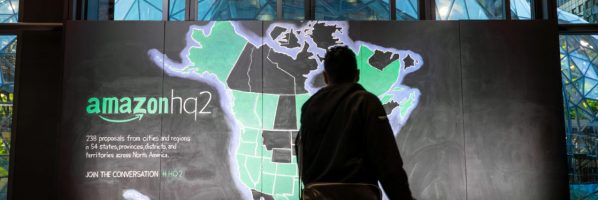
Four months after Amazon announced plans to construct a second headquarters, North American cities have been making grandstanding pleas in order to court the ecommerce behemoth. New York City’s mayoral office lit up the Empire State building with Amazon’s glowing orange hue in a symbolic gesture, while certain cities like Chicago went the more extreme route, proposing laws that could funnel income taxes directly back to the company. After much speculation, here is the official Amazon HQ2 shortlist:
- Atlanta
- Austin
- Boston
- Chicago
- Columbus, Ohio
- Dallas
- Denver
- Indianapolis
- Los Angeles
- Miami
- Montgomery County, Md.
- Nashville
- Newark
- New York
- Northern Virginia
- Philadelphia
- Pittsburgh
- Raleigh, N.C.
- Toronto
- Washington, D.C.
Unsurprisingly, most of the cities that made the cut were among the largest in North America, with only one Canadian city—Toronto—left standing. Over 230 cities from the U.S., Canada, and Mexico made official bids for the company’s second headquarters, with Amazon prioritizing tech-centric metros of populations larger than 500,000. In fact, only four of the 20 metro areas—Miami, Nashville, Newark, and Pittsburgh—have a population of less than half a million, with Newark being the smallest of the entrants. Notably, Newark offered perhaps the largest financial incentive to the company, proposing upwards of $7 billion in tax incentives.
How the Amazon HQ2 shortlist was formed is not totally known, according to the New York Times:
“According to people briefed on the process who would speak only anonymously because the deliberations were private, the process was conducted by a team of about a dozen people within Amazon, including economists, human resources managers and executives who oversee real estate. Jeff Bezos, Amazon’s chief executive who was the mastermind behind turning the search into a public process and coined the term “HQ2,” was also involved, the people said.”
At the time of the initial announcement, Amazon released a stream of positive economic statistics about its impact in Seattle, home to the original headquarters. The company stated (although these statistics are still not yet verified by any source outside of Amazon) that it added $38 billion USD to the value of the city from 2010-16 alone, due to its investments and rapidly expanding workforce. Detractors argue that the financial value added to the city did not positively impact the quality of life, however, with more than 51 percent of Seattle residents making less than $50,000 per year and more than quarter of city residents earn less than $25,000 per year. The influx of high-level employment also contributed to rapidly rising housing costs and poorer traffic.
Experts from CNBC believe that Raleigh might be the front-runner of the remaining entrants, which matches the initial bid criteria the most. Although some speculate that Austin most aligns up with Amazon’s future. The company declined to announce when the final decision will be made.
What Amazon Means For MBA Students
Not so secretly, Amazon has become one of the world’s largest MBA recruiters, hiring students from top schools all over the world. We’ve previously outlined the details of why it has become such an attractive destination for business school students.
The company creates a direct pipeline from its MBA internship program to full-time employment, which should rapidly increase with the creation of HQ2. In a previous interview with the Financial Times, Miriam Park, the Amazon Director of University Programs, highlighted the company’s recruitment strategy:
“The Amazon recruitment process is designed to ensure we hire top candidates with high-growth potential whatever their background may be. As part of this we recruit current MBA students and MBA alumni for permanent and internship opportunities worldwide and see MBAs as an important part of our leadership development. We value people who can balance long-term strategic thinking with tactical execution, and who have the ability to make data-driven decisions.”
Stay tuned for more information about the second headquarters and more potential MBA employment opportunities with MetroMBA.
London Business School Prof Warns of the Future for Tech Giants

Last year, tech giants such as Google, Amazon, and Facebook already started facing new regulations and pushback from government officials. For example, last November, the State of Missouri launched an investigation into Google to see if it had violated antitrust and consumer protection laws. Julian Birkinshaw, a professor of strategy and entrepreneurship at London Business School, thinks that’s only the beginning.
“The tech giants are huge beasts, and there is a growing sense of unease about their power,” Birkinshaw said in a news article on the school website. He went on to talk about various fines already levied against big tech firms such as Google, which was ordered to pay €2.4 billion last June for abusing its internet search monopoly to promote its online shopping service. Facebook, meanwhile, got slapped with a €110-million fine by the European Union for providing misleading information about its takeover of WhatsApp.
According to Birkinshaw, these examples are just the tip of the iceberg. “Over the coming year we can expect to see more of this aggressively activist approach in tackling companies with dominant positions,” he wrote.
What’s driving this more aggressive regulation? Birkinshaw believes it has to do with the old supplier-manufacturer-distributor-consumer model, which doesn’t fit these new tech giants. Antitrust legislation wasn’t designed to cope with tech companies whose profitability increases rapidly alongside its growth.
For example, Facebook has more than two billion active users, Google handles 42 percent of all U.S. digital advertising, and Amazon has all but eliminated would-be competitors. Birkinshaw sees no signs of these companies slowing down.
“The more people who join Facebook or use Google, the more data the company can mine. The economies of scale become ever greater,” Birkinshaw wrote. “So we need to rethink the way we monitor the power of the huge companies now dominating the business landscape.”
This article has been edited and republished with permissions from our sister site, Clear Admit.
Beyond Business School: Emory Goizueta MBA Alumni Make Waves

One of the key quality indicators of an MBA program is its alumni. By looking at a school’s alumni, you can get a sense of the kinds of individuals who are drawn to the program, the impact the program can have on your future career, and the type of network you’ll have access to. At Emory University’s Goizueta Business School, this network includes Nick Harris, the director of digital operations and optimization for United Airlines in Chicago, and Elizabeth Halkos, the chief operating officer at Purchasing Power, an e-commerce company that provides voluntary benefits programs to employers to help their employees improve their financial well-being.
Nick Harris — ’08 EvMBA
Nick Harris’ job is all about enhancing the online shopping experience for United Airlines customers. To do this, he spends his days studying the behavior of visitors to United.com, from using their smartphones to shop to purchasing a service bundle. He then looks at what the competition is doing to ensure that United Airlines keeps on top of the latest trends.
Talking about his job, Harris told Goizueta: “An average week for me usually involves looking at a wealth of information or data and trying to understand what types of hypotheses we can generate based off how customers are behaving or transacting with our channels.”
For example, one of Harris’ main tasks is ensuring that consumers can purchase products on the United Airlines app as easily as they do on a webpage using their smartphones or computer. He also has to keep up with what the giants of customer service—Google, Apple, and Amazon—are doing.
Harris told Goizueta that when these companies offer a new service or do something really intelligent, they set a new standard that United Airlines has to keep up with. “You’re not just competing against others in your industry; you’re competing for mind space and time with all of the other devices and apps that are on customers’ phones,” he says.
However, this can be difficult for a large company that’s nearly 100 years old, but that challenge is part of what Harris enjoys. Harris regularly partners with other product owners to enhance the digital experience, collaborating across teams to assess metrics together to identify opportunities to improve the overall United Airlines customer experience.
“One of the things that we’ve been doing a lot is looking at web analytics data and marrying that with transactional data. As a company, we have loads of transactional data, which is one of the things that I absolutely love about being at a company this size,” explains Harris.
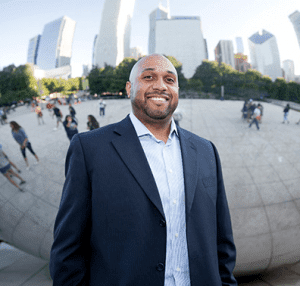
Nick Harris
His interest in working for a company like United Airlines was one of the reasons that Harris chose Emory for his MBA. Prior to attending Goizueta, he was employed at a small tech firm and considering launching an investment group with a few friends. The problem was that Harris didn’t have the right tool set and background to succeed. So, he began to look into the Goizueta Evening MBA program.
“I felt it was worth the investment to go back to school and take the time to grow in a structured learning environment, in order to build that tool set,” he says. “This way I could evaluate our opportunities and learn the science of business.”
But, in the end, it wasn’t just the classroom experience that impacted Harris, it was the relationships that he built. In particular, his relationship with Professor Patrick Noonan led him to the airline industry. “We were talking one day, and Noonan says, ‘If you really like this work and you’re interested in doing optimization, you should think about the airline industry, given all of the work they do from a space revenue management standpoint,” remembers Harris. And the rest was history.
Elizabeth Halkos – ’01 MBA
As the chief operating officer at Purchasing Power, Elizabeth Halkos has a good deal of leadership experience, which was recently recognized during the 14th annual Stevie Awards for Women in Business. Halkos was praised for raising the bar professionally and as a teacher and mentor for young women looking to launch their own ventures. This and her other accomplishments led her to be named a Silver Award Winner in the “Female Executive of the Year, Business Services: 11 to 2,500 Employees – Business Services” category.
Since 2002, the Stevie Awards have honored women executives, entrepreneurs, employees, and the companies they run globally. Each year, more than 170 professionals worldwide come together on five specialized juries to nominate the top women and organizations across more than 60 nations.
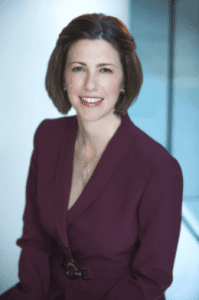
Elizabeth Halkos
After earning her MBA with a concentration in statistics and data analytics at Emory Goizueta in 2001, Halkos went on to work as a brand manager at Earthlink, Inc. and an account executive at Monster.com. From there, she served two years at the Inforte Corporation, where she consulted with such clients as Miller Brewing Company and Ocean Spray. Then, finally, she found her way to Purchasing Power in 2006.
Halkos started at Purchasing Power as the vice president of sales and marketing and quickly moved up the ranks. By 2010, she was promoted to chief marketing officer and then to chief revenue officer by 2014. In January of 2017, she was appointed to her current role of COO.
Halkos’s achievements at Purchasing Power include driving the top line revenue from $30M to more than $400M over a decade and helping the EBITDA (earnings before interest, taxes, depreciation, and amortization) grow from $5M to more than $40M. Most recently, she played an integral role in launching Purchasing Power’s 2017 rebranding campaign, which included new channel partnership strategies. This resulted in a 19 percent revenue and 80.5 percent adjusted EBITDA growth, compared to the same six months the previous year.
Halkos’s responsibilities at Purchasing Power include oversight of sales, account management, client services, customer experience, customer care, customer operations, business-to-business marketing, and public relations. She is also responsible for leading the broker and employer growth strategies for the company, which has helped Purchasing Power place on the “Inc. 5000 List of America’s Fastest-Growing Companies” for nine years in a row.
Outside of her job at Purchasing Power, Halkos is still very involved at Emory Goizueta. Since 2008, she has served as a board member, and previously served as president and vice president of the board. Recently, Halkos was also chosen as the recipient of Emory University’s “Annual Service Award” in recognition of her involvement in mentoring and supporting students at Goizueta.
To learn more about MBA alumni at Emory Goizueta, visit the school’s website.
This article has been edited and republished with permissions from our sister site, Clear Admit.
A New Year, A New Dean: NYU Stern Taps Insider to Fill Top Role
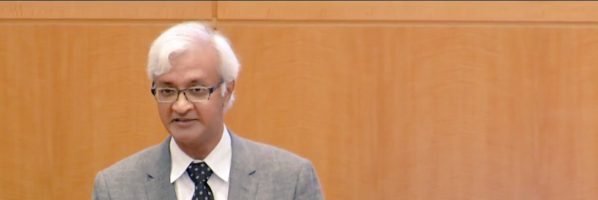
There will be a new dean at the helm when the NYU Stern School of Business rings in 2018, but he’s certainly not a newcomer to the school. NYU President Andrew Hamilton and Provost Katherine Fleming today announced that Rangarajan “Raghu” Sundaram, who joined Stern’s faculty more than two decades ago, has been appointed as dean, effective January 1, 2018.
Sundaram, a professor of credit and debt markets as well finance, was selected by Dean Peter Henry in 2016 to join Stern’s leadership team as vice dean for MBA programs. In that role, he has overseen the school’s full-time MBA program; the Langone part-time MBA program; multiple dual-degree programs; and the Executive MBA program, among others. He also helped establish the Creative Destruction Lab, launch the school’s new, specialized one-year MBA programs, and bring business leaders from companies including Amazon, Jigsaw, Microsoft, IBM, and PayPal to join Stern’s newly created Tech MBA Advisory Board.
Sundaram was among several strong candidates for the dean’s post, the school reports. “But in the end, the Search Committee found the best candidate here in our own midst,” President Hamilton said in a statement. “And rightly so. Raghu Sundaram has a strong, highly-regarded record of leadership and innovation, scholarship and teaching, and collegiality and service to both Stern and the university. In a field of distinguished candidates for Stern’s deanship, Raghu stood out.”
As vice dean, Sundaram is also credited with helping extend the school’s New York City–based EMBA program to downtown Washington DC, and shepherding Stern’s entry into online education through the launch of a series of online certificate programs.
As a researcher, Sundaram’s work has focused on agency problems, executive compensation, corporate finance, derivatives pricing, credit risk, and credit derivatives, areas in which he has published extensively. He also has won several awards, including the Jensen Prize and the Stern School’s inaugural Distinguished Teaching Award, and was a finalist for the Brattle Prize and a recipient of research grants from the National Science Foundation and other organizations.
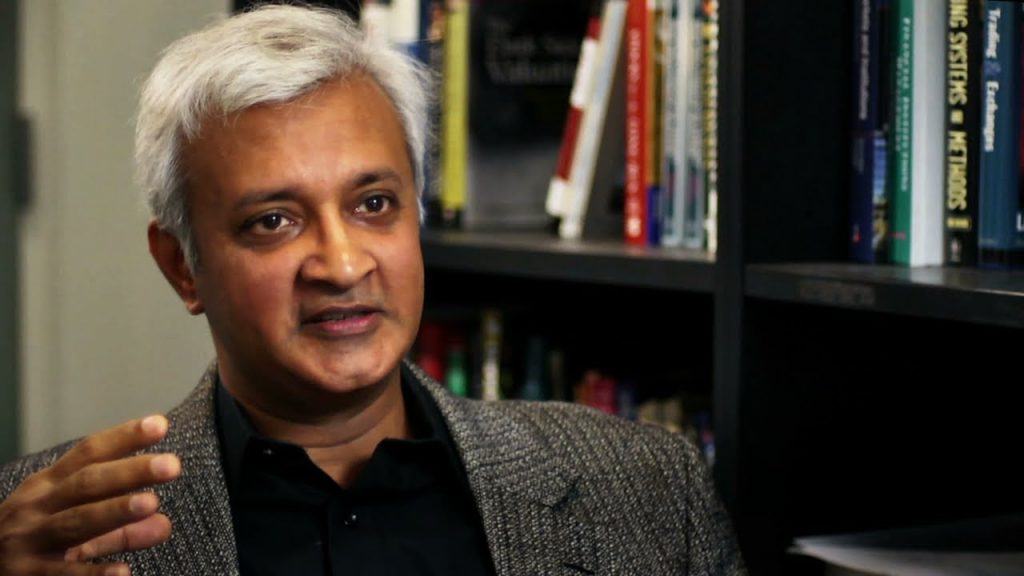
Incoming NYU Stern Dean Rangarajan “Raghu” Sundaram.
The Indian-born Sundaram holds an MBA from Indian Institute of Management, Ahemedabad, as well as both an MA and PhD in economics from Cornell. He taught on the faculty of the University of Rochester for eight years before joining Stern’s faculty in 1996.
Sundaram will replace outgoing Dean Peter Henry, who announced in February of this year his plans to step down and return to full-time scholarship. “At a time when advanced-nation rhetoric and a seeming unwillingness to commit to the reforms needed for growth are at odds with global population trends and an increased need for investment in the developing world, I believe now is the time for me to make further contributions as an economist, advisor and Stern professor,” Henry stated at the time explaining his decision.
Learn more about newly appointed NYU Stern Dean Rangarajan Sundaram.
